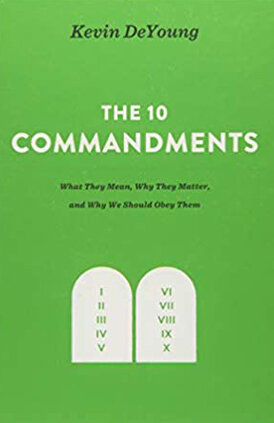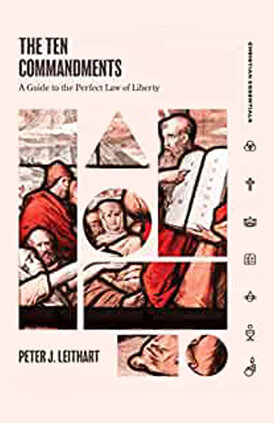The Bible, and Jesus in particular, have an awful lot to say about money and resources. One commentator says there are over 2,000 references to material wealth in Scripture. Jesus spoke more about money than he did about faith and prayer combined. In fact, Jesus goes so far as to say that our approach to money is a primary indicator of the health of our hearts.
And if that’s the case, we have a lot to learn. 65% of Americans say finances are a significant source of stress. The average credit card debt per household is $14,241—with the total in our country hitting $787 billion and nearly a third of Americans with no savings plan.
So how do we think and live well with our money? How can we learn from Scripture to get our financial house in order and, in the process, help our hearts to flourish in the Kingdom of God?
To help facilitate LifeGroup discussion, we'll be posting resources for each week of the series.
Week 1: Cash Rules Everything Around Me (C.R.E.A.M.)
(Sermon) (Transcript) (LifeGroup Guide)
Week 2: Mo’ Money Mo’ Problems
(Sermon) (Transcript) (LifeGroup Guide)
Week 3: It’s All About the Benjamins
(Sermon) (Transcript) (LifeGroup Guide)
Week 4: Working 9-5 (What a Way to Make a Living)
(Sermon) (Transcript) (LifeGroup Guide)
Week 5: Can’t Buy Me Love
(Sermon) (Transcript) (LifeGroup Guide)
Bonus Podcast: Midtown Midweek | Money FAQs
Our goal for this series is to apply what Jesus has to say about money to our lives and follow him as we manage what, in reality, is already his. To accomplish this goal, we will have weekly homework for you to intentionally work through outside your LifeGroup time. Then, when you meet with your LifeGroup weekly, you will have time to discuss your homework and what Jesus is teaching you.
WEEK 1 HOMEWORK
Spend some time reflecting and journaling through the questions below. If you are married, then discuss these questions with your spouse.
What is your financial story? How does your family treat money?
Where have you experienced seasons of financial strength or hardship?
What is your overall perspective and attitude towards money (Do you want more of it? Does it make you scared or nervous? Do you stress out because of it? Etc.)?
What purchases do you make to fill a perceived need in your life? Where are you tempted to overspend?
Read Luke 12:15-21. What do you think it looks like to be rich toward God? If someone looked at your bank account, would they naturally conclude that you are rich toward God? Why or why not?
Read Luke 12:32-34. What does it mean to provide yourself with treasures in heaven? Where are you sacrificing potential treasures here on earth in order to send your treasure forward to heaven? How might you grow in generosity through this series?
Are there any beliefs, attitudes, or actions you currently have regarding money that you know are unhealthy or sinful? Where do you hope to see your life grow in light of this series?
This week, regularly ask God to remind you that your identity is found in him, with true security and significance.
WEEK 2 HOMEWORK
Here are some goals for you to consider for your homework this week. You may have additional financial goals you want to set as well. If you are currently not practicing any or some of these goals, we encourage you to use them as a starting point.
Goal 1 - Start giving
Generosity is a step in trusting that God will provide for all you need as you seek to advance his kingdom first. Scripture calls us to start with generosity to God and then meet our basic needs. What our Midtown members commit to in our membership covenant is giving 10% of their income to Midtown as a baseline. If you are not currently tithing, start there as a first step in following Jesus with your finances. Then, give to other ministries and missionaries as you sense the Lord leading you. The goal is to start somewhere. Aim to increase your generosity from year to year.
Goal 2 - Save for an emergency fund
Financial emergencies happen to all of us. An initial great savings goal is to save $1,000 as a starter emergency fund. If you have $1,000 saved, the next goal would be to save three to six months of your basic living expenses. If you haven’t experienced an emergency yet, it will happen to you at some point. Your car might break down, and you have to replace it. You may have an unexpected hospital visit. You may lose your job or have a reduction in income. If emergencies are going to happen, you would be wise to save for them. Having money set aside for emergencies will help you avoid having to go into debt.
Goal 3 - Make a budget
The next financial goal is to create and follow a budget. Proverbs 27:23 says, “Know well the condition of your flocks, and give attention to your herds.” The practical implications for you are to make a plan for your regular income, have a budget, and tell your money where to go. Know what’s coming in and know what’s going out. If you don’t, you will only wonder where it went. As managers of what is God’s, we want to tell money where to go rather than be mastered by it. In the coming week, we will have some homework time for you to put a budget in place if you don’t already have one or make tweaks as needed if you do.
Goal 4 - Make a plan to pay off all debt(s) you have (except your home mortgage)
If you currently have bad financial debt, a great goal would be to create a plan to get out of debt as quickly as possible. This plan should only be done after you have at least $1,000 for an emergency starter fund. Bad debt would be credit card debt or debt on an asset depreciating. A home mortgage would not fall in this category as you are investing in an asset generally appreciating in value. If you’re unsure about what is meant here, ask someone in your Lifegroup that you know and trust regarding personal finances for their insight and wisdom.
Goal 5 - Save for future expenses
If you have money saved for emergencies, a working budget you stick with, and living debt-free, you will need to consider other goals. Plan ways to save for upcoming expenses such as retirement, a car, a college fund for your kid, or a vacation. That way, instead of going into debt later, you can save now to pay for future expenses.
Goal 6 - Build up the church
Some of you are great examples and models for our church family in stewardship and generosity. You are exemplary in what you do, which is part of your giftedness. Consider ways to invest your wisdom and giftedness into your LifeGroup. How might you be a resource to others in your group that are just beginning to learn how to manage their finances? In addition, are there areas you can trim down to be even more generous? Consider ways Jesus invites you to live with less to invest even more courageously towards seeing his kingdom advance.
WEEK 3 HOMEWORK
To assess your monthly spending, we have created a spreadsheet for you to enter all your expenses from the previous month. To access the spreadsheet, click the link below. Once you open the link, click ‘File’ and ‘Make a Copy’ in the top left corner of the spreadsheet.
Step 1: Enter your income
Your first step for using this spreadsheet will be to enter your income for the month in the very top left of the spreadsheet. Enter your total income for the month in the green cell. Only enter your total income. Not your total expenses. You will enter each individual expense in the next step, and it will be totaled automatically. If you have irregular income, your total income should be what you estimate your monthly income to be based on previous averages. It’s okay if it is more or less than what actually came in.
Step 2: Enter your expenses
Next, you will enter each expense you had for the month in the columns below. You will enter the date, who you paid, and the amount. You also need to select the type of expense that it was using the drop-down for each row. This will categorize all of your expenses in the pie chart to the right to help you see where your money went for the month.
If you did not spend all of your income and don’t allocate it to a savings account, add an expense line to categorize this as general savings. If you do allocate some of your money to a savings account, make sure to enter that as an expense even though you are not actually spending that money. That will help you see what percentage of your income you set aside for savings.
Step 3: Assess your spending
Once you have entered all your monthly spending and the total income and expense numbers match, look at the pie chart to the right. This chart shows you where your money went for the past month. Where is your money going most? Are you spending more than you make? How do these numbers line up with your financial goals that you set last week? Is there anything that needs to change? Are you spending more in certain areas than you would like to? Does your spending reveal how you look for satisfaction in temporary things rather than eternal things?
We encourage you to do this as an ongoing practice. The goal is to assess and reevaluate monthly. Next week for homework, you will take your financial goals from week two and the assessment from this week and work on creating or tweaking your budget as needed.
WEEK 4 HOMEWORK
This week you will be working on creating a budget. We have created a spreadsheet for you to create your budget. To access the spreadsheet:
Click the link below.
Once you open the link, click ‘File’ and ‘Make a Copy’ in the top left corner of the spreadsheet to create your copy.
If you already use a different tool for budgeting, feel free to use that during this time.
Step 1: Enter your monthly income
First, you will enter your monthly income. You only need to input numbers into the green cells in the file. As a reminder, if you have irregular income each month, you will need to figure out what your average monthly income is.
Step 2: Enter your monthly expenses
Below the income section, you will enter all your monthly expenses in the appropriate green cells. The cells in black will show you how much of your income you are putting towards a specific expense type. Feel free to change the names for the particular expense categories as it suits you.
As you budget, here are a few things to keep in mind. The Net number at the top of the spreadsheet must equal zero. If not, you are not finished. The goal is to allocate every dollar you are planning to receive for the coming month.
Next, always start with generosity. Scripture calls us to give our first fruits and our best to God. Start your budget with generosity and flow out from there. Finally, plan to meet your five basic needs first. Those are housing, utilities, food, transportation, and clothing.
Step 3: Budget using your financial goals
Once you have planned for these in your budget, use your financial goals from week 2 to help guide you. Do you need to save your first $1,000 or fully fund your emergency savings? Make that a priority. In the budget, there are lines for savings goals. Input what you can save each month to reach your goal. Even though you won’t be spending this money now, remember you are allocating every dollar in your budget to get your net to zero.
If you have emergency savings, are you trying to pay off any non-mortgage debt? After you meet your basic needs and have saved for an emergency, figure out how much you can put toward paying off your debts. Can you pay more than your minimum payments to get out of debt quicker? Is there spending happening beyond your basic needs that you can cut or trim down to help you achieve your financial goals?
WEEK 5 HOMEWORK
As an initial step for ongoing accountability, set aside time each month to assess where your money went for the month, tweak your budget as needed, and lock this time in as a monthly event on your calendar.
As you do an ongoing assessment, if you are spending more than you budgeting for in a specific area, what needs to change? For example, if you budget $100 for eating at restaurants and are spending $200, what do you need to stay on budget?
Here are some additional ideas for ongoing accountability and maintenance:
Once a month (or more frequently if needed), use the assessment tool you went through in week 3 to determine where your money went for the month.
If you need help staying on track during the month, consider pulling out cash at the beginning of the month for expenses that are the hardest for you to stay on track with. For example, if your restaurant budget is $100, get that out in cash at the beginning of the month. Once you have spent that money, you have no more money to eat at restaurants for that month.
Another option is to make a note on your phone of your restaurant budget for that month. Decrease the amount each time you eat at a restaurant as a way to track as you go. This method can help you stay on budget for more variable expenses such as eating out, groceries, and gas.
For additional accountability, ask for help from someone you love and trust. If you're spending money on unnecessary Amazon shopping and getting a package at your doorstep daily, ask someone for accountability. Accountability can look like asking a friend if they will check in on you monthly to see if you're spending more than you're planning to in a particular area. This step is significant for your good and the good of the person you're sharing with. Walk in the light with your finances and ask for help if you need it.
Revisit your financial goals that you set in your week two homework as part of your monthly review. Are you making progress toward your goals? Have you accomplished any of them? As you accomplish goals, make adjustments and start new goals as needed.































































































